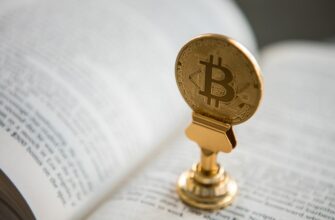The rapid rise of cryptocurrency has sparked intense debate among Muslims worldwide: **Is crypto halal?** Esteemed Islamic scholar Mufti Ismail Menk has addressed this modern financial dilemma, urging caution rooted in Sharia principles. With over 15 million followers seeking his guidance, Mufti Menk’s insights help Muslims navigate the complexities of digital assets while upholding faith. This article explores his stance, key Islamic finance principles, and practical advice for ethical engagement.
## Understanding Halal Finance in Islam
Islamic finance operates under strict Sharia guidelines prohibiting:
– **Riba (Interest)**: Earning or paying fixed interest on loans or investments.
– **Gharar (Excessive Uncertainty)**: Transactions with ambiguous terms or speculative outcomes.
– **Maysir (Gambling)**: Activities reliant on chance rather than skill or tangible value.
– **Haram Industries**: Involvement with alcohol, gambling, or other forbidden sectors.
Mufti Menk emphasizes that any financial instrument—including crypto—must align with these core tenets to be deemed halal.
## Mufti Menk’s Stance on Cryptocurrency
While Mufti Menk hasn’t issued a blanket fatwa declaring all crypto haram, his analyses highlight significant concerns:
1. **Speculative Nature**: He compares volatile crypto trading to gambling (maysir), where prices swing unpredictably.
2. **Lack of Intrinsic Value**: Unlike gold or property, cryptocurrencies often lack tangible backing, creating gharar.
3. **Regulatory Gray Areas**: Many coins operate outside government oversight, increasing fraud risks.
4. **Energy Consumption**: Bitcoin mining’s environmental impact may conflict with Islam’s stewardship principles.
In his lectures, Mufti Menk advises Muslims to prioritize “clear, permissible investments” and avoid ambiguity.
## When Might Crypto Be Considered Halal?
Not all cryptocurrencies automatically violate Sharia. Mufti Menk suggests these conditions for potential permissibility:
– **Utility Over Speculation**: Coins serving real-world purposes (e.g., payment systems) are preferable to meme coins.
– **Sharia-Compliant Certification**: Assets vetted by Islamic finance boards, like Islamic Coin (ISLM).
– **Transparent Operations**: Projects with clear governance, anti-fraud measures, and ethical use cases.
– **Avoiding Leverage**: No interest-based margin trading or derivatives.
## Practical Steps for Muslims Exploring Crypto
If considering cryptocurrency:
1. **Research Thoroughly**: Study the coin’s purpose, team, and compliance certifications.
2. **Prioritize Stability**: Opt for established assets with lower volatility.
3. **Consult Scholars**: Seek localized fatwas from trusted Islamic authorities.
4. **Limit Exposure**: Allocate only discretionary funds you can afford to lose.
5. **Document Transactions**: Maintain records for zakat calculations.
## FAQ: Mufti Menk and Crypto Halal Status
**Q: Did Mufti Menk declare Bitcoin haram?**
A: He hasn’t issued an absolute prohibition but warns against its speculative risks, advising extreme caution.
**Q: Is crypto mining halal?**
A: Mining may be permissible if energy sources are ethical and the cryptocurrency itself is Sharia-compliant. Avoid coins tied to haram activities.
**Q: Are stablecoins like USDT halal?**
A: They reduce volatility (minimizing gharar), but scholars debate their backing assets. Verify reserve transparency.
**Q: Can I pay zakat with cryptocurrency?**
A: Yes, if the crypto is halal-owned. Calculate its market value at the time of payment.
**Q: What alternatives does Mufti Menk recommend?**
A: He encourages gold, real estate, or Islamic banking products that avoid uncertainty and interest.
## Final Guidance: Faith First
Mufti Menk’s core message is clear: **Preserve your deen (faith) over profit**. Cryptocurrency’s evolving landscape demands vigilance—where uncertainty prevails, avoidance is the safest path. Muslims should prioritize investments with clear Islamic legitimacy, ensuring wealth growth never compromises spiritual integrity. As blockchain technology advances, ongoing dialogue with qualified scholars remains essential to navigate this digital frontier faithfully.








